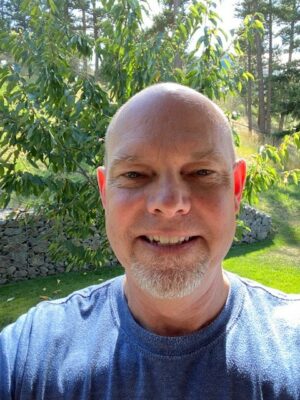
A quarter of a century in the water and wastewater industry has opened up many opportunities for Rob Fleming. He has held multiple public safety positions over the last 25 years, with 20 of those being focused on the treatment and maintenance of drinking water. Right now, he is the manager of the Drinking Water Safety Program for First Nations Health Authority and is headquartered in Tk’emlúps te Secwépemc in Kamloops, British Columbia. Even as a young boy, Rob was intrigued by the construction and mechanics of water treatment plants. That interest, along with his knowledge and passion for public health, has brought him to many different places and organizations in North America.
As a former board member and Chair, Rob has been involved with plenty of conferences and projects through the Environmental Operator Certification Program. The EOCP is a Canadian organization dedicated to optimizing community health through certification and classification. His understanding of the operator certification process grew, and in time, he was introduced to WPI, where he has been serving as the board’s At-Large Division Director since 2018. His transition to WPI came as no surprise. “I have been passionate about water and wastewater operators for a very long time,” he says. His interactions with other skilled and enthusiastic people at WPI is what he loves most about the organization.
“Everyone has the same goal; everyone is trying to bring water and wastewater operators into the limelight.”
Rob is also zealous about acknowledging how essential operators are for the water and wastewater field and notes how easily they are taken for granted until the tap doesn’t run or the toilet doesn’t flush. “Any sort of condensed population would not exist without sewer and water,” he affirms. He goes on to say that people see sidewalks but don’t think about what goes on underneath them—water pipes leading to and from their homes—and the expertise required to implement and maintain such a vital operation. Increased awareness of these processes will lead to more resources and education opportunities becoming available for water and wastewater operators.
Educational Institutions in Canada primarily focus on healthcare, engineering, accounting, or other traditional careers for their students. Even so, Rob has noticed a rising interest in the trades in recent years, and he is hopeful about this change. Rob is currently working on a recognition program at First Nations Health Authority. Every fall in British Columbia, there are caucuses where regional leaders of these nations come together and talk about challenges in their respective communities. It is Rob’s goal to make water part of that discussion as well. “Even simple recognition can go a very long way,” he says. Rob is grateful for the networking opportunities at WPI because he gets to help larger agencies promote new ways to recruit and sustain operators. He promises that he will always look for the chance to help guide, educate, and recognize those in this high-value profession.



